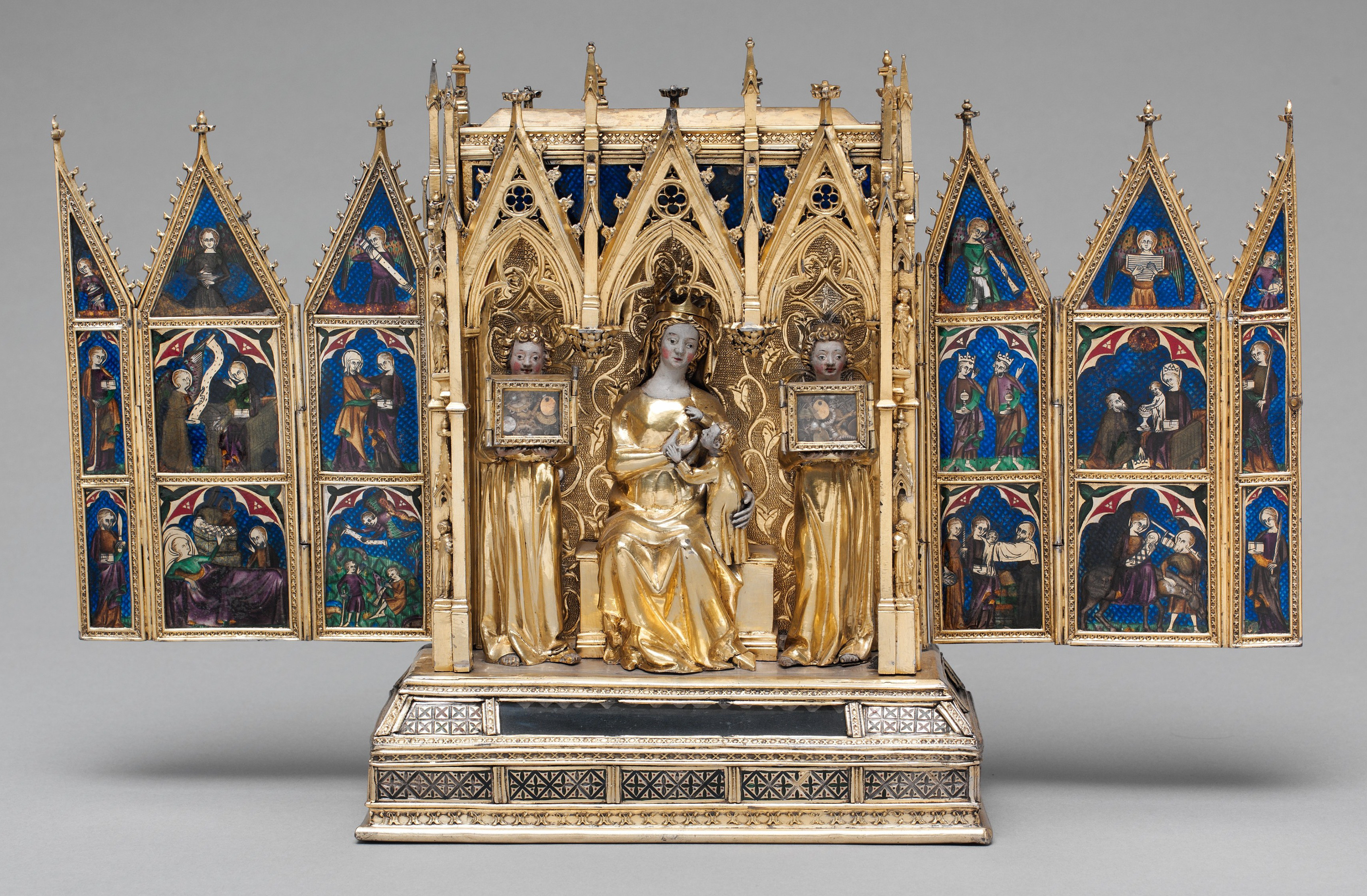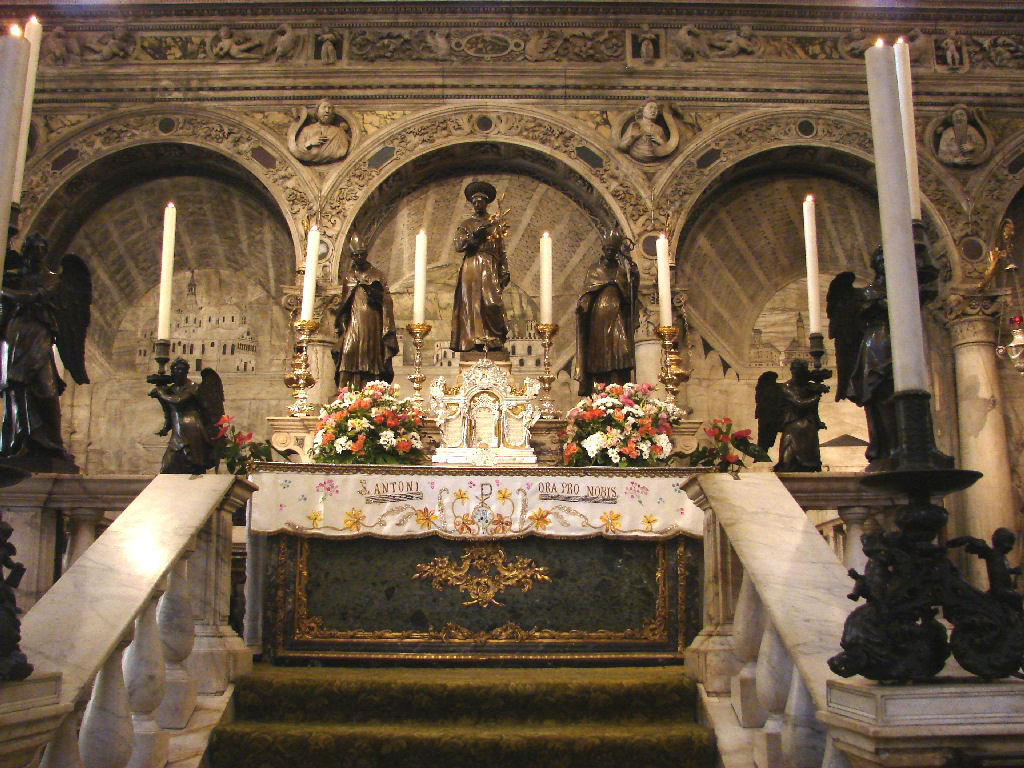|
Relic
In religion, a relic is an object or article of religious significance from the past. It usually consists of the physical remains or personal effects of a saint or other person preserved for the purpose of veneration as a tangible memorial. Relics are an important aspect of some forms of Buddhism, Christianity, Islam, shamanism, and many other religions. ''Relic'' derives from the Latin ''reliquiae'', meaning "remains", and a form of the Latin verb ''relinquere'', to "leave behind, or abandon". A reliquary is a shrine that houses one or more religious relics. In classical antiquity In ancient Greece, a polis, city or Greek temple, sanctuary might claim to possess, without necessarily displaying, the remains of a venerated hero as a part of a Greek hero cult, hero cult. Other venerable objects associated with the hero were more likely to be on display in sanctuaries, such as spears, shields, or other weaponry; chariots, ships or Figurehead (object), figureheads; furniture such a ... [...More Info...] [...Related Items...] OR: [Wikipedia] [Google] [Baidu] |
Reliquary
A reliquary (also referred to as a ''shrine'', ''Chasse (casket), chasse'', or ''phylactery'') is a container for relics. A portable reliquary, or the room in which one is stored, may also be called a ''feretory''. Relics may be the purported or actual physical remains of saints, and may comprise bones, pieces of clothing, or some object associated with saints or with other religious figures. The authenticity of any given relic is often a matter of debate; for that reason, some churches require documentation of a relic's provenance. Relics have long been important to Buddhism, Buddhists, Christianity , Christians, Hinduism , Hindus, and to followers of many other religions. These cultures often display reliquaries in shrines, churches, or temples to which the faithful make pilgrimages to gain blessings. The term is sometimes used in a looser sense to mean a container for the remains of any important figure, even non-religious ones. In particular, the kings of France often spe ... [...More Info...] [...Related Items...] OR: [Wikipedia] [Google] [Baidu] |
Veneration
Veneration (; ), or veneration of saints, is the act of honoring a saint, a person who has been identified as having a high degree of sanctity or holiness. Angels are shown similar veneration in many religions. Veneration of saints is practiced, formally or informally, by adherents of some branches of all major religions, including Christianity, Judaism,"Veneration of saints is a universal phenomenon. All monotheistic and polytheistic creeds contain something of its religious dimension... " Hinduism, Islam, Buddhism and Jainism. Within Christianity, veneration is practiced by groups such as the Catholic Church, Eastern Orthodox Church, and the Oriental Orthodox Church, all of which have varying types of canonization or glorification processes. In Catholicism and Orthodoxy, veneration is shown outwardly by respectfully kissing, bowing or making the sign of the cross before a saint's icon, relics, or statue, or by going on pilgrimage to sites associated with saints. The Lutheranis ... [...More Info...] [...Related Items...] OR: [Wikipedia] [Google] [Baidu] |
Shrine
A shrine ( "case or chest for books or papers"; Old French: ''escrin'' "box or case") is a sacred space">-4; we might wonder whether there's a point at which it's appropriate to talk of the beginnings of French, that is, when it wa ...: ''escrin'' "box or case") is a sacred space dedicated to a specific deity, ancestor worship, ancestor, hero, martyr, saint, Daemon (mythology), daemon, or similar figure of respect, wherein they are venerated or worshipped. Shrines often contain Cult image, idols, relics, or other such objects associated with the figure being venerated. A shrine at which votive offerings are made is called an altar. Shrines are found in many of the world's religions, including Christianity, Islam, Hinduism, Buddhism, Chinese folk religion, Shinto, indigenous Philippine folk religions, and Germanic paganism as well as in secular and non-religious settings such as a war memorial. Shrines can be found in various settings, such as churches, temples, cemeteries, or ... [...More Info...] [...Related Items...] OR: [Wikipedia] [Google] [Baidu] |
Buddhism
Buddhism, also known as Buddhadharma and Dharmavinaya, is an Indian religion and List of philosophies, philosophical tradition based on Pre-sectarian Buddhism, teachings attributed to the Buddha, a wandering teacher who lived in the 6th or 5th century Before the Common Era, BCE. It is the Major religious groups, world's fourth-largest religion, with about 500 million followers, known as Buddhists, who comprise four percent of the global population. It arose in the eastern Gangetic plain as a movement in the 5th century BCE, and gradually spread throughout much of Asia. Buddhism has subsequently played a major role in Asian culture and spirituality, eventually spreading to Western world, the West in the 20th century. According to tradition, the Buddha instructed his followers in a path of bhavana, development which leads to Enlightenment in Buddhism, awakening and moksha, full liberation from ''Duḥkha, dukkha'' (). He regarded this path as a Middle Way between extremes su ... [...More Info...] [...Related Items...] OR: [Wikipedia] [Google] [Baidu] |
Latin
Latin ( or ) is a classical language belonging to the Italic languages, Italic branch of the Indo-European languages. Latin was originally spoken by the Latins (Italic tribe), Latins in Latium (now known as Lazio), the lower Tiber area around Rome, Italy. Through the expansion of the Roman Republic, it became the dominant language in the Italian Peninsula and subsequently throughout the Roman Empire. It has greatly influenced many languages, Latin influence in English, including English, having contributed List of Latin words with English derivatives, many words to the English lexicon, particularly after the Christianity in Anglo-Saxon England, Christianization of the Anglo-Saxons and the Norman Conquest. Latin Root (linguistics), roots appear frequently in the technical vocabulary used by fields such as theology, List of Latin and Greek words commonly used in systematic names, the sciences, List of medical roots, suffixes and prefixes, medicine, and List of Latin legal terms ... [...More Info...] [...Related Items...] OR: [Wikipedia] [Google] [Baidu] |
Oedipus
Oedipus (, ; "swollen foot") was a mythical Greek king of Thebes. A tragic hero in Greek mythology, Oedipus fulfilled a prophecy that he would end up killing his father and marrying his mother, thereby bringing disaster to his city and family. The story of Oedipus is the subject of Sophocles' tragedy ''Oedipus Rex'', which is followed in the narrative sequence by '' Oedipus at Colonus'' and then '' Antigone''. Together, these plays make up Sophocles' three Theban plays. Oedipus represents two enduring themes of Greek myth and drama: the flawed nature of humanity and an individual's role in the course of destiny in a harsh universe. In the best-known version of the myth, Oedipus was born to King Laius and Queen Jocasta of Thebes. Laius wished to thwart the prophecy, so he sent a shepherd-servant to leave Oedipus to die on a mountainside. However, the shepherd took pity on the baby and passed him to another shepherd who gave Oedipus to King Polybus and Queen Merope to raise ... [...More Info...] [...Related Items...] OR: [Wikipedia] [Google] [Baidu] |
Pelops
In Greek mythology, Pelops (; ) was king of Pisa in the Peloponnesus region (, lit. "Pelops' Island"). He was the son of Tantalus and the father of Atreus. He was venerated at Olympia, where his cult developed into the founding myth of the Olympic Games, the most important expression of unity, not only for the people of Peloponnesus, but for all Hellenes. At the sanctuary at Olympia, chthonic night-time libations were offered each time to "dark-faced" Pelops in his sacrificial pit ('' bothros'') before they were offered in the following daylight to the sky-god Zeus (Burkert 1983:96). Family Pelops was a son of Tantalus and either Dione, Euryanassa, Eurythemista,Scholia ad Euripides, ''Orestes'11/ref> or Clytia. In some accounts, he was called a bastard son of Tantalus while others named his parents as Atlas and the nymph Linos. Others would make Pelops the son of Hermes and Calyce while another says that he was an Achaean from Olenus. Of Phrygian or Lydian ... [...More Info...] [...Related Items...] OR: [Wikipedia] [Google] [Baidu] |
Olympia, Greece
Olympia ( ; ), officially Archaia Olympia ( ), is a small town in Elis (regional unit), Elis on the Peloponnese peninsula in Greece, famous for the nearby archaeological site of the same name. The site was a major Panhellenic sanctuary, Panhellenic religious sanctuary of ancient Greece, where the ancient Olympic Games were held every Olympiad, four years throughout classical antiquity, from the 8th century BC to the 4th century AD. They were Olympic Games, restored on a global basis in 1894 in honor of the ideal of peaceful international contention for excellence. The sacred precinct, named the Altis, was primarily dedicated to Zeus, although other gods were worshipped there. The games conducted in his name drew visitors from all over the Greek world as one of a group of such "Panhellenic" centres, which helped to build the identity of the ancient Greeks as a nation. Despite the name, it is nowhere near Mount Olympus in northern Greece, where the twelve Olympians, the major deit ... [...More Info...] [...Related Items...] OR: [Wikipedia] [Google] [Baidu] |
Tutelary Deity
A tutelary (; also tutelar) is a deity or a Nature spirit, spirit who is a guardian, patron, or protector of a particular place, geographic feature, person, lineage, nation, culture, or occupation. The etymology of "tutelary" expresses the concept of safety and thus of guardianship. In Platonic idealism, late Greek and Roman religion, one type of tutelary deity, the ''Genius (mythology), genius'', functions as the personal deity or ''daimon'' of an individual from birth to death. Another form of personal tutelary spirit is the familiar spirit of European folklore. Ancient Greece Socrates spoke of hearing the voice of his personal spirit or ''daimonion'': The Greeks also thought deities guarded specific places: for instance, Athena was the patron goddess of the city of Athens. Ancient Rome Tutelary deities who guard and preserve a place or a person are fundamental to Religion in ancient Rome, ancient Roman religion. The tutelary deity of a man was his Genius (mythology), Geni ... [...More Info...] [...Related Items...] OR: [Wikipedia] [Google] [Baidu] |
Chef De Saint Yves
A chef is a professional cook and tradesperson who is proficient in all aspects of food preparation, often focusing on a particular cuisine. The word "chef" is derived from the term (), the director or head of a kitchen. Chefs can receive formal training from an institution, as well as by apprenticing with an experienced chef. Different terms use the word ''chef'' in their titles and deal with specific areas of food preparation. Examples include the ''sous-chef'', who acts as the second-in-command in a kitchen, and the ''chef de partie'', who handles a specific area of production. The kitchen brigade system is a hierarchy found in restaurants and hotels employing extensive staff, many of which use the word "chef" in their titles. Underneath the chefs are the ''kitchen assistants''. A chef's standard uniform includes a hat (called a '' toque''), neckerchief, double-breasted jacket, apron and sturdy shoes (that may include steel or plastic toe-caps). Etymology The word "ch ... [...More Info...] [...Related Items...] OR: [Wikipedia] [Google] [Baidu] |
Classical Athens
The city of Athens (, ''Athênai'' ; Modern Greek: Αθήναι, ''Athine'' ) during the classical period of ancient Greece (480–323 BC) was the major urban centre of the notable '' polis'' ( city-state) of the same name, located in Attica, Greece, leading the Delian League in the Peloponnesian War against Sparta and the Peloponnesian League. Athenian democracy was established in 508 BC under Cleisthenes following the tyranny of Isagoras. This system remained remarkably stable, and with a few brief interruptions, it remained in place for 180 years, until 322 BC (aftermath of Lamian War). The peak of Athenian hegemony was achieved in the 440s to 430s BC, known as the Age of Pericles. In the classical period, Athens was a centre for the arts, learning, and philosophy, the home of Plato's Academy and Aristotle's Lyceum, Athens was also the birthplace of Socrates, Plato, Pericles, Aristophanes, Sophocles, and many other prominent philosophers, writers, and politici ... [...More Info...] [...Related Items...] OR: [Wikipedia] [Google] [Baidu] |









